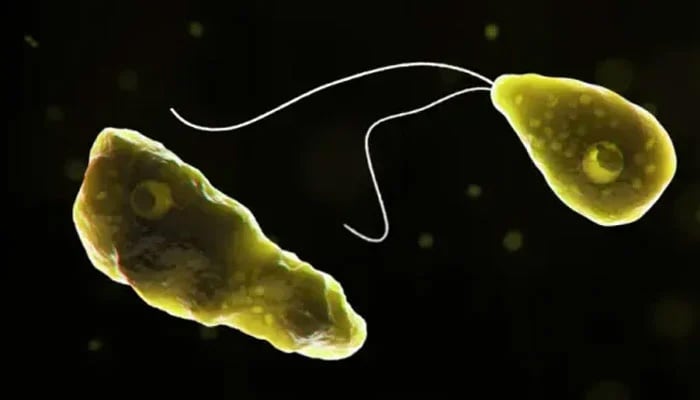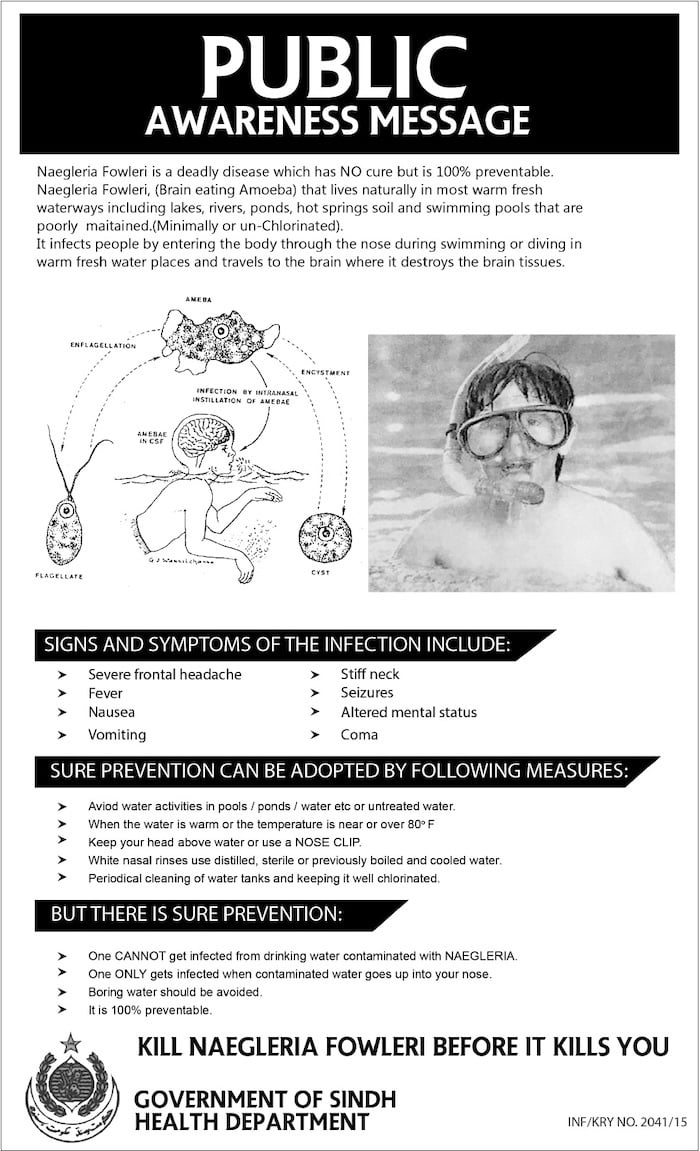Pakistan reports first death from Naegleria fowleri in 2025
Woman, 36, from Karachi succumbed to brain-eating amoeba, confirms Sindh Health Department
KARACHI: A 36-year-old woman from Karachi's Gulshan-e-Iqbal area died after contracting Naegleria fowleri — Pakistan's first fatality from the brain-eating amoeba of this year.
According to officials, the woman first experienced symptoms on February 18 and was admitted to a private hospital on February 19.
She passed away on February 23, with lab reports confirming Naegleria fowleri infection a day later, on February 24.
Investigations revealed that the deceased had not participated in any water-related recreational activities. Her only known exposure to water was performing ablution at home.
Pakistan reported five deaths from Naegleria fowleri in 2024, with four cases in Karachi and one in Hyderabad.
What is Naegleria and what can we do?
Doctors and health experts say Naegleria usually enters the brain and attacks the nervous system when infected water is ingested through the nasal cavity while bathing, swimming or performing ablution.
The deadly amoeba survives on bacteria in warm waters and can only be decimated through proper chlorination or boiling of water.
Health experts have reiterated the importance of adequate chlorination in water sources to prevent Naegleria fowleri infections.
The amoeba, which thrives in warm, untreated water, can enter the body through the nose and cause fatal brain infections.
Health experts advise people to get their underground and overhead water tanks cleaned before summer starts every year and use chlorine tablets to routinely purify the water.
-
Jelly Roll explains living with 'severe depression'
-
Charli XCX reveals ‘confusing’ toll ‘Brat’ popularity took on her
-
Margot Robbie opens up about imposter syndrome ‘crisis’
-
Hailey Bieber reveals how having ovarian cysts is 'never fun'
-
Sir Elton John details struggle with loss of vision: 'I can't see'
-
What we know about Chris Cornell's final hours
-
5 famous celebrities who beat cancer
-
Oprah Winfrey talks about weight-loss 'tool to manage' health













